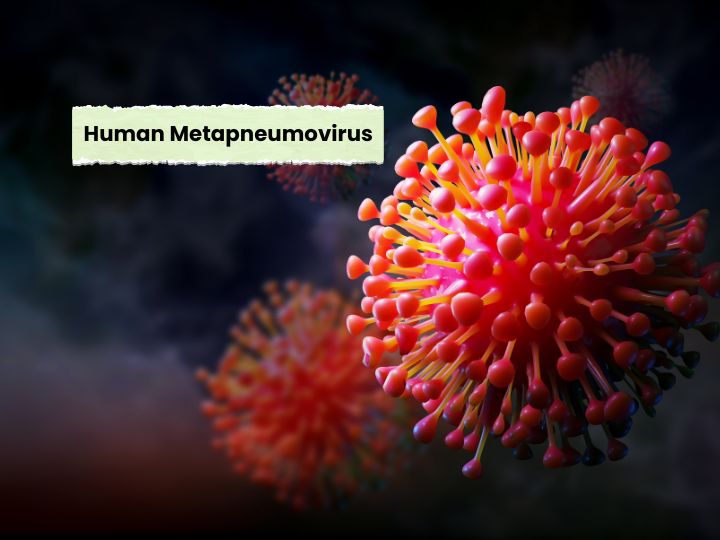Introduction
The Human Metapneumovirus (HMPV) has recently seen a surge in cases across India, raising alarms among healthcare professionals and the public alike. While HMPV is primarily known for causing respiratory illnesses, recent findings suggest a potential link to kidney complications, adding a new dimension to the challenges posed by this virus. This essay delves into the nature of HMPV, the reasons behind its recent surge in India, and its alarming connection to kidney health.
What is HMPV?
Human Metapneumovirus (HMPV) was first identified in 2001 but is believed to have been circulating in humans for decades. It is a part of the Paramyxoviridae family, which includes other respiratory pathogens such as respiratory syncytial virus (RSV). HMPV primarily targets the respiratory system and is known to cause symptoms ranging from mild to severe respiratory illness.
The virus is highly contagious and spreads through respiratory droplets, contaminated surfaces, and close contact with infected individuals. Common symptoms include fever, cough, nasal congestion, sore throat, and difficulty breathing. In severe cases, it can lead to pneumonia, bronchiolitis, or exacerbation of asthma. Vulnerable groups such as infants, the elderly, and individuals with underlying health conditions are particularly at risk of severe outcomes.
The Surge in HMPV Cases in India
India has experienced a noticeable uptick in HMPV cases in recent months. The rise has been particularly evident during the post-monsoon season, a time when respiratory illnesses are generally more prevalent. Experts point to several contributing factors for this surge:
- Post-pandemic immunity gaps: The COVID-19 pandemic disrupted normal exposure to common respiratory viruses, leading to a gap in immunity among the population.
- Environmental changes: Shifts in seasonal weather patterns, such as increased humidity during the monsoon, create favorable conditions for respiratory virus transmission.
- Low public awareness: Unlike COVID-19 and influenza, HMPV remains less known, which delays diagnosis and preventive efforts.
Hospitals across the country are reporting an increase in admissions for respiratory illnesses, with many patients testing positive for HMPV. In some regions, the strain on healthcare systems has become evident as cases outnumber available resources.
Link Between HMPV and Kidney Complications
While HMPV is primarily associated with respiratory illnesses, recent clinical evidence suggests a troubling connection to kidney complications. Doctors and researchers are beginning to observe that patients suffering from severe HMPV infections are at a higher risk of developing kidney-related issues. These complications are thought to arise from the body's inflammatory response to the virus.
Here are some key findings related to this connection:
- Immune-mediated damage: Severe HMPV infections trigger an intense immune response, which can inadvertently harm kidney tissues. This is particularly concerning in patients with pre-existing kidney conditions.
- Acute Kidney Injury (AKI): In some cases, HMPV has been linked to acute kidney injury, a sudden loss of kidney function that can lead to the buildup of waste products in the blood. AKI often requires immediate medical intervention, including dialysis in severe cases.
- Dehydration and fluid imbalances: High fever, respiratory distress, and inadequate fluid intake during severe HMPV infections contribute to dehydration, which puts additional strain on the kidneys.
Studies are still ongoing to understand the full scope of this connection, but early data emphasizes the need for vigilant monitoring of kidney function in patients with severe HMPV.
Preventive Measures and Treatment
Preventing HMPV infections and their complications requires a multi-pronged approach. Here are some effective strategies:
- Good hygiene practices: Regular handwashing with soap and water, avoiding close contact with sick individuals, and disinfecting commonly touched surfaces can reduce the spread of HMPV.
- Mask usage: Wearing masks in crowded or enclosed spaces can help prevent respiratory infections, including HMPV.
- Boosting immunity: A balanced diet rich in vitamins and minerals, adequate sleep, and regular exercise are essential for maintaining a robust immune system.
For patients who contract HMPV, treatment focuses on alleviating symptoms and preventing complications. This includes:
- Symptomatic care: Medications to reduce fever and relieve cough and congestion are commonly prescribed.
- Oxygen therapy: In severe cases, supplemental oxygen may be required to support breathing.
- Monitoring kidney function: Patients at risk of kidney complications are closely monitored, and renal support therapies are initiated as needed.
Conclusion
The recent surge in HMPV cases in India is a stark reminder of the evolving nature of viral infections and their impact on public health. While the virus primarily affects the respiratory system, its potential link to kidney complications underscores the importance of early detection and comprehensive care. By raising awareness, adopting preventive measures, and ensuring timely medical intervention, we can mitigate the impact of this emerging health threat and safeguard the well-being of vulnerable populations.

